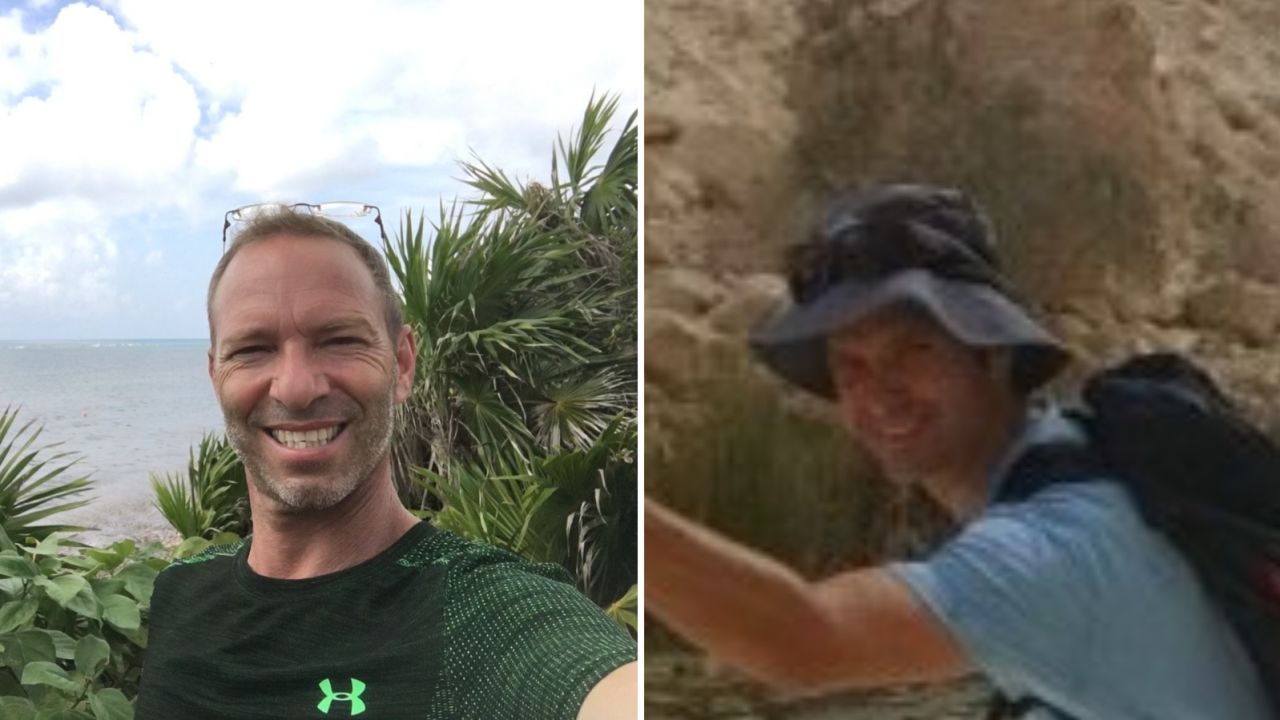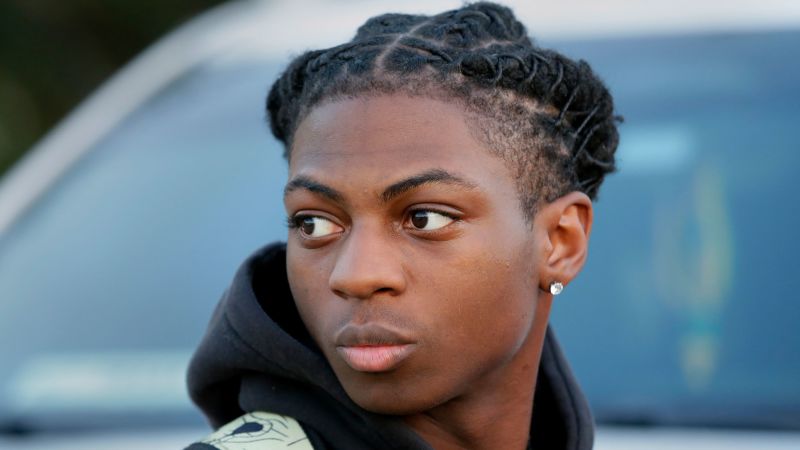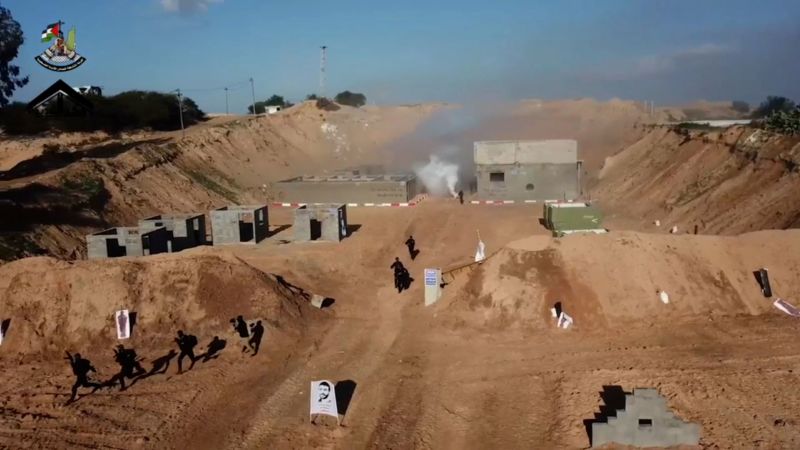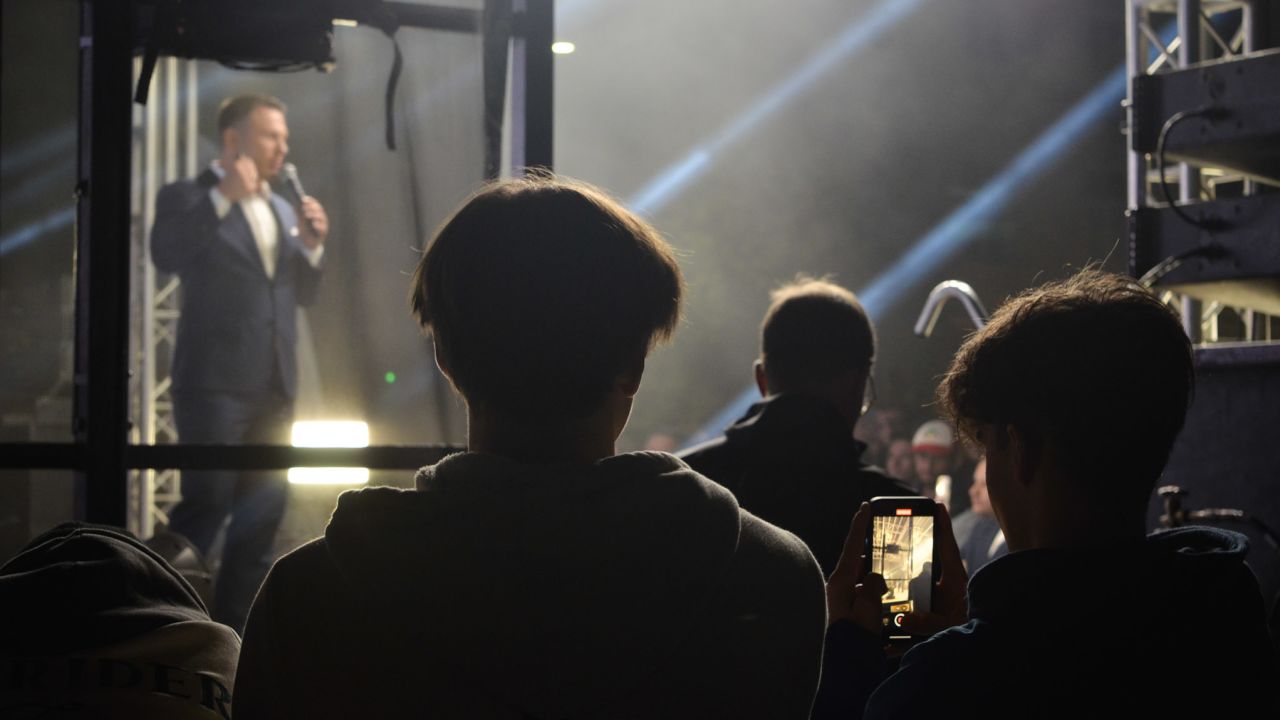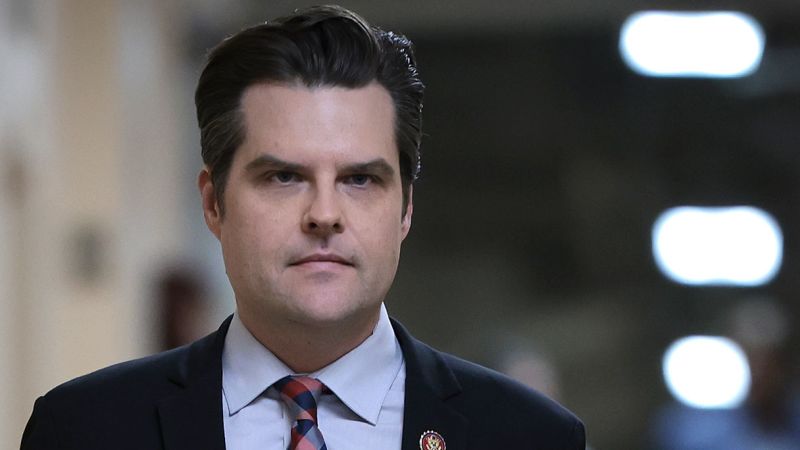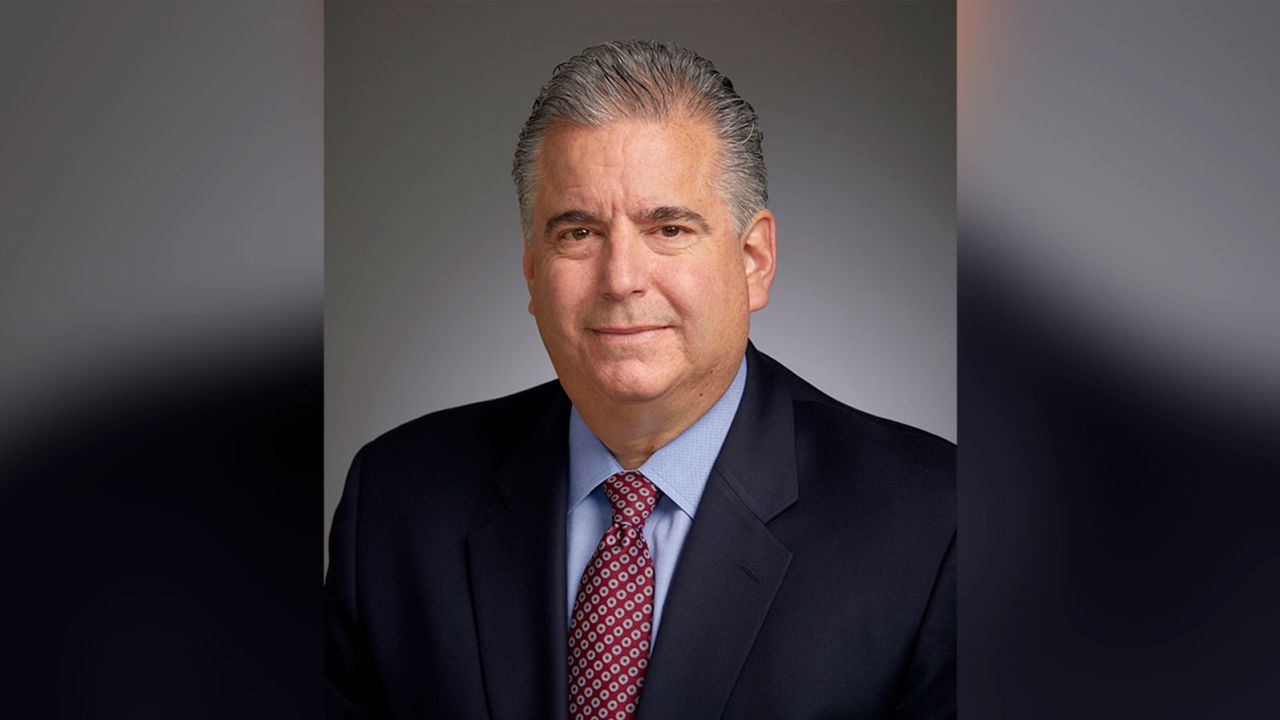CNN
—
A mother who shielded her son from gunfire, a “pro-peace” academic, young people who attended a musical festival and two brothers are among at least 27 Americans who have been killed in the warfare between Israel and Hamas, family members and officials say.
Brothers Igal Wachs, 53, and Amit Wachs, 48, were killed when Hamas gunmen stormed their village of Netiv HaAsara, which borders Gaza, Igal’s ex-wife Liat Oren-Wachs told CNN.
Both were dual Israeli-American citizens and members of the village’s security team, said Oren-Wachs, who believes the pair were killed trying to defend their community. Amit had lived in Netiv HaAsara all his life and leaves behind a wife, two daughters and a son, Oren-Wachs said.
“They were both very family oriented,” she said.
The brothers are among the US citizens who were killed after the Gaza-based militant group launched a devastating attack on Israel early Saturday that left at least 1,200 dead.
The number of Americans dead after the Hamas attack now stands at 27, the White House said Thursday. Fourteen Americans are missing, National Security Council spokesman John Kirby said.
Israeli-American Daniel Ben Senior, 34, who had been missing since attending the Nova music festival near the Gaza-Israel border, has been killed, her father told CNN. She had been working with a group of event organizers at the festival, which was supposed to be an all-night dance party to celebrate the Jewish holiday of Sukkot. The festival became a scene of carnage Saturday as Hamas gunmen attacked attendees.
Jacob Ben Senior, who had been unable to reach his daughter since Friday, was informed by authorities she was killed, he told CNN’s Erica Hill.
In response to the attack, Israel has pounded Gaza with airstrikes. At least 1,417 people have been killed in Gaza – including 447 children – and more than 6,200 have been wounded, according to the Palestinian Health Ministry. Medical care has been hampered by Israel cutting power to the territory. It’s unclear whether any US citizens are among those killed or injured in Gaza.
As families in the US wait for information about their missing loved ones, others are confronted with the sudden loss of siblings, children or parents.
Here is what we know about some of the Americans who have died in Israel.
‘A child of light and life’
Ilan Troen said he was on the phone with his daughter when she was killed.
Troen, a professor emeritus from Brandeis University in Massachusetts, said his daughter and son-in-law, Deborah and Shlomi Matias, were killed by Hamas militants over the weekend. Troen’s grandson, 16-year-old Rotem Matias, was shot but will survive, Troen told CNN’s Poppy Harlow on Monday.
Troen said he was speaking to his daughter when militants infiltrated the safe room the family was in. After she was shot, her body gave cover to her son.
“We were on the phone with Deborah as she was killed,” Troen said. “We were on the phone the entire day with our grandson, Rotem, as he lay first under her body, and then found a place to escape under a blanket in a laundry.”
Rotem was shot in the stomach, Troen said, but will recover.
“The brunt of the shot was borne by his mother,” he said. “The terrorists who came, they had explosives and blew up the front door to their house and then blew out the front door to their so-called safe room.”
Rotem hid for more than 12 hours after he was shot, texting on his phone to communicate with people who were coaching him on how to breathe and how to manage “the blood that was coming out of his abdomen,” Troen said, adding Rotem’s phone was down to a 4% charge when he was rescued.
Deborah Matias attended the Rimon School of Music in the Tel Aviv area, where she met her husband, Troen told CNN. “Deborah was a child of light and life,” Troen said. “She, rather than becoming a scientist or a physician, she said to me one day, ‘Dad, I have to do music, because it’s in my soul.’”
Hayim Katsman was “very pro-peace” and had supported “a solution for this bleeding conflict” between Israel and Palestinians before he was killed, his sibling told CNN.
Noy Katsman – who is non-binary and uses they/them pronouns – said they last heard from their brother Saturday morning when he wrote to say there were terrorists in Kibbutz Holit, which is in southwest Israel near Gaza.
When they tried to reach their brother again about four hours later, there was no response.
Hayim Katsman’s friend, Avital Alajem, described how she was hiding inside a shelter’s closet with Katsman when gunmen came and began firing at the door – striking Katsman multiple times.
“He was murdered,” Alajem told CNN’s Anderson Cooper in Israel early Tuesday. “I was saved because he was next to the door, and they shot him.”
Katsman, who was a US citizen, was remembered by his sibling as a “brilliant academist,” a musician who DJ’d and played bass, and a volunteer at the community garden in the city of Rahat.
He earned his PhD in international studies from the University of Washington’s Henry M. Jackson School of International Studies in 2021 and was described as “an emerging scholar in the field of Israel Studies,” in a statement issued by the Association for Israel Studies.
Noy Katsman told CNN they hoped their brother’s death will not be used “as an excuse to kill other innocent people,” adding: “He wouldn’t have wanted that.”
Israeli-American Roey Weiser was killed during Saturday’s attack, his mother, Naomi Feifer-Weiser, told CNN.
Weiser, 21, was a sergeant who served in the 13th Battalion of the Golani Brigade and was stationed at the Kerem Shalom border crossing, his mother said.
“He died how he lived, by putting others first, and when his base was overrun by terrorists, he went on his own to divert their attention allowing others to escape. Because of his bravery, at least 12 other soldiers are alive today,” Weiser’s mother said.
She said the family was finally able to retrieve her son’s body on Tuesday. The funeral was held Wednesday.
“Roey lived his life to the fullest, almost always with a smile on his face,” the mother said. “He was always looking for ways to help those around him, and before he was conscripted he was a volunteer firefighter who was always the first to jump into action when needed.”
Though Weiser’s parents were born and raised in the US, they now live in Israel.
A 20-year-old New Jersey-born, Israeli soldier died in the attacks, his relatives told CNN.
Earlier this week, the parents of Itay Glisko were visited at their home by soldiers who told them their son was dead, according to Rachel Glisko, Itay’s aunt who lives in Los Angeles.
His parents had been waiting for days to hear “any shred of evidence” of their son’s whereabouts, the aunt said, but “nobody knew what was going on with him.”
Rachel Glisko said her nephew fought like a “lion” against Hamas until the end.
“Since yesterday, we can’t stop crying. I don’t believe it, can’t believe it,” she said. “He took care of them, he was fighting and was taking care of his fellow soldiers who got wounded.”
His aunt described him as kind and generous and said he “didn’t complain about anything in the army.”
“He was really a fighter. He fought for Israel,” she added.
His parents and family are devastated.
“He’s only 20 years old. He’s not going to have girlfriend, not going to have kids, not going to have a wedding. It’s done,” she said through tears. “This family have (a) big hole in hearts, not going to recover from that.”
Aryeh Shlomo Ziering, a 27-year-old dual Israeli-American citizen, was killed in Israel, his aunt Debby Ziering confirmed to CNN.
He was a captain in the Israeli Defense Forces’ dog-handling unit.
Ziering’s parents, who are from New York and Maine, moved to Israel after getting married. Although he was born and raised in Israel, Ziering attended summer camp in the United States and grew up speaking English with his parents, his aunt said.
Debby Ziering also told CNN that Aryeh grew up not wanting to be a soldier, but “when my nephew does something, he does it 200%. And he was very passionate about protecting his country.”
She remembers him as a “fun-loving, athletic, great kid.”
Danielle Waldman, who was born in Palo Alto, California, was attending the music festival in Israel with her boyfriend of six years when they both were killed, her father Eyal Waldman told CNN’s Erin Burnett.
“I had hoped and thought that they may have been taken hostages to Gaza and that we would see them again,” he said.
Eyal Waldman found out just hours before speaking to CNN that his daughter was among those killed. Danielle was his youngest daughter.
“Each and every one that met her have loved her,” Eyal tearfully recalled. “She’s done nothing wrong and nothing bad to anyone.”
He said the last time he spoke with his daughter she mentioned she had decided with her boyfriend that they would get married soon. The two had just moved into a new apartment several weeks before they were killed with a dog they share, and they had refurnished and redecorated it.
“We will bury them together,” her father said.
Cindy Flash, 67, was a dual citizen and a native of St. Paul, Minnesota. Her husband, Igal Flash, 66, was born in Israel as a son of Holocaust survivors.
The couple are among the dozens killed in one of the grisliest scenes emerging from the Hamas attack on Israel, their daughter, Keren Flash, told CNN.
Keren, 34, said she learned Thursday her parents were killed in the safe room of their home in Kfar Aza, a southern Israel kibbutz close to the Israeli-Gaza border – a home they moved back into just a week before their deaths.
“The last message my mom sent was at 4:59 p.m. on Saturday, and she said, ‘They’re breaking into the house,’” Keren said.
Three minutes later, Cindy Flash texted attackers had broken into the safe room.
“That was the last time anyone heard from them,” Keren said.
She described her mother as “all heart and soul.” Her father, Igal, was the strong and silent type with a sweet soul, Keren said.
Keren told CNN her mother had unwavering hope in humanity, even protesting Israeli military action in Gaza.
“They were some of the best people that I have ever known,” Keren said. “They were good people. They cared about other people. They fought for other people’s rights and other people’s voices.”
Jonathan Rom, a dual Israeli-American citizen, was killed in the Hamas attack on the Nova music festival, his family said.
Rom’s cousin, Daniel Zaken, told CNN that Rom was attempting to help a young woman escape when he encountered heavy gunfire.
The Israel Defense Forces informed Rom’s family of his death Wednesday, according to Zaken, who was traveling to Greece on Thursday to return home to suburban Atlanta.
Zaken said he was on his way to Israel aboard a cruise ship when the attack that claimed his cousin’s life occurred.
Rom, who was born in South Carolina, had lived in Israel for several years, Zaken said.
“It’s just helplessness,” Zaken told CNN. “It’s just unbelievable that they’ve been even able to do something like this.”
Israel resident Ranae Butler said her family was once a “big, beautiful tribe.”
The attack by Hamas on the Nir Oz kibbutz changed everything. “Half our family is gone,” Butler said in an interview with “CNN News Central.”
Six relatives, including at least five US citizens, were among the residents killed by Hamas on Saturday near the Gaza Strip, according to Butler.
Nir Oz, close to the site of the Nova music festival, was among the worst hit of the kibbutzim near Gaza, with scores of residents killed or taken hostage.
Butler’s mother, Carol Siman Tov, 70, and her brother, Johnny Siman Tov, 36, texted her after they fled to safe rooms at their separate houses on the kibbutz during the attack, Butler said.
Johnny and his wife, Tamar Kedem-Siman Tov, 35, hid with their three children – twins Arbel and Shachar, 5, and Omer, 2 – Butler said.
Butler’s mother fled home with her dog, Charlie. Johnny texted Butler, saying, “‘They’re here. They’re burning us. We’re suffocating,’” Butler said.
Johnny and his wife were shot through a window, and Butler’s mother was shot to death in her own safe room, Butler said.
Carol, Johnny and the three children were US citizens, according to Butler. Tamar’s citizenship wasn’t immediately clear.
Several other family members living at Nir Oz survived the attack, Butler said, including two of her brothers, two sisters and her father, Larry Butler, also US citizens. She said her brother Shachar Butler, who was head of security for the kibbutz, was shot but is recuperating.
“They barely put on their boots and pants, and ran and fought in bravery,” Butler said.
“We’re crying and hugging,” she said. “They’ve all been through hell.”
A young man who loved nature and wanted to be a DJ
Twenty-year-old Laor Abramov’s dream was to be a DJ like his father, David.
The permanent resident of the US was killed in last weekend’s attack on Israel by Hamas, his mother, Michal Halev, told CNN.
“This was our worst nightmare,” Halev said, after getting word of his death.
Abramov was attending a nature party on Saturday with his friends when his family lost contact with him.
On Monday, his parents shared a photo of him in a shelter with CNN. They believed he was hiding out in a border city near Gaza.
“We have been calling and texting and emailing and just sending photos on social media and asking everyone we know,” Abramov’s mother had told CNN’s Poppy Harlow on Monday.
Laor loved being in nature with his friends, his mother said.
Correction: An earlier version of this story overstated the number of American citizens confirmed killed in Israel.
Correction: An earlier version of this story misspelled Daniel Ben Senior’s first name.


